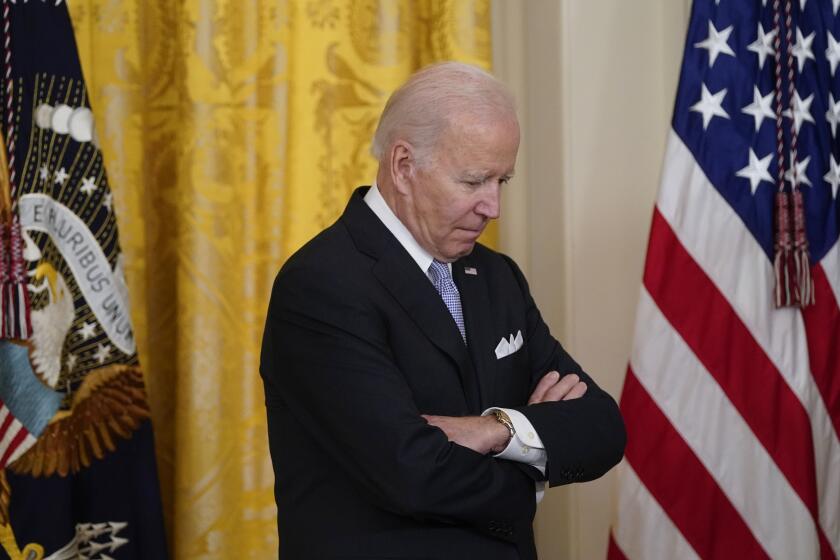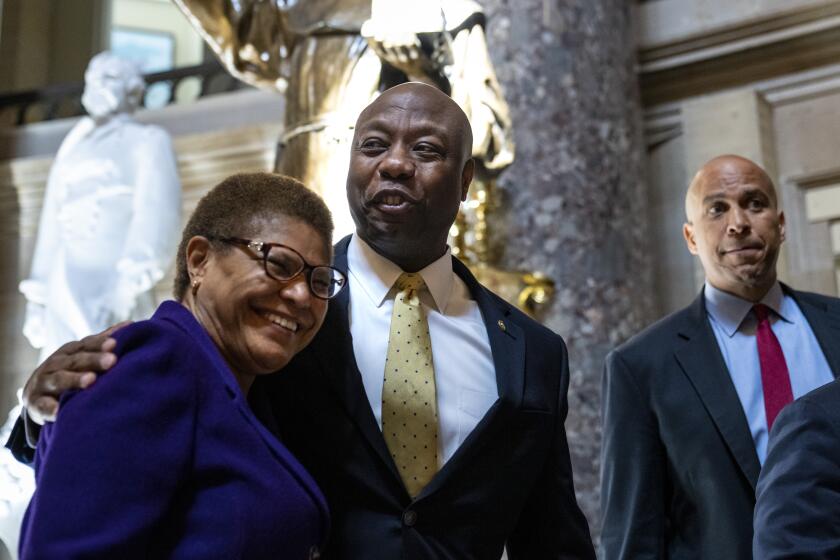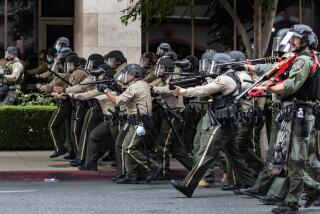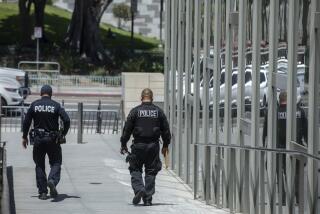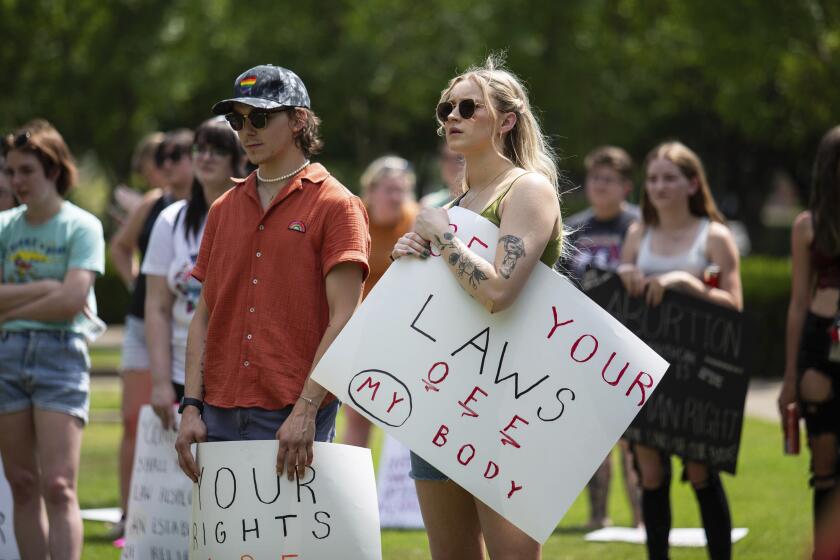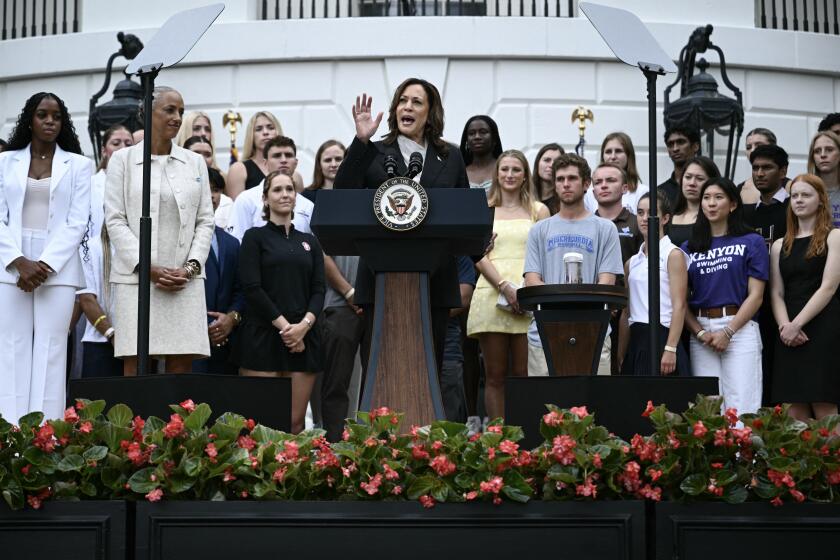Editorial: Biden should know. Adding 100,000 more cops is the wrong approach
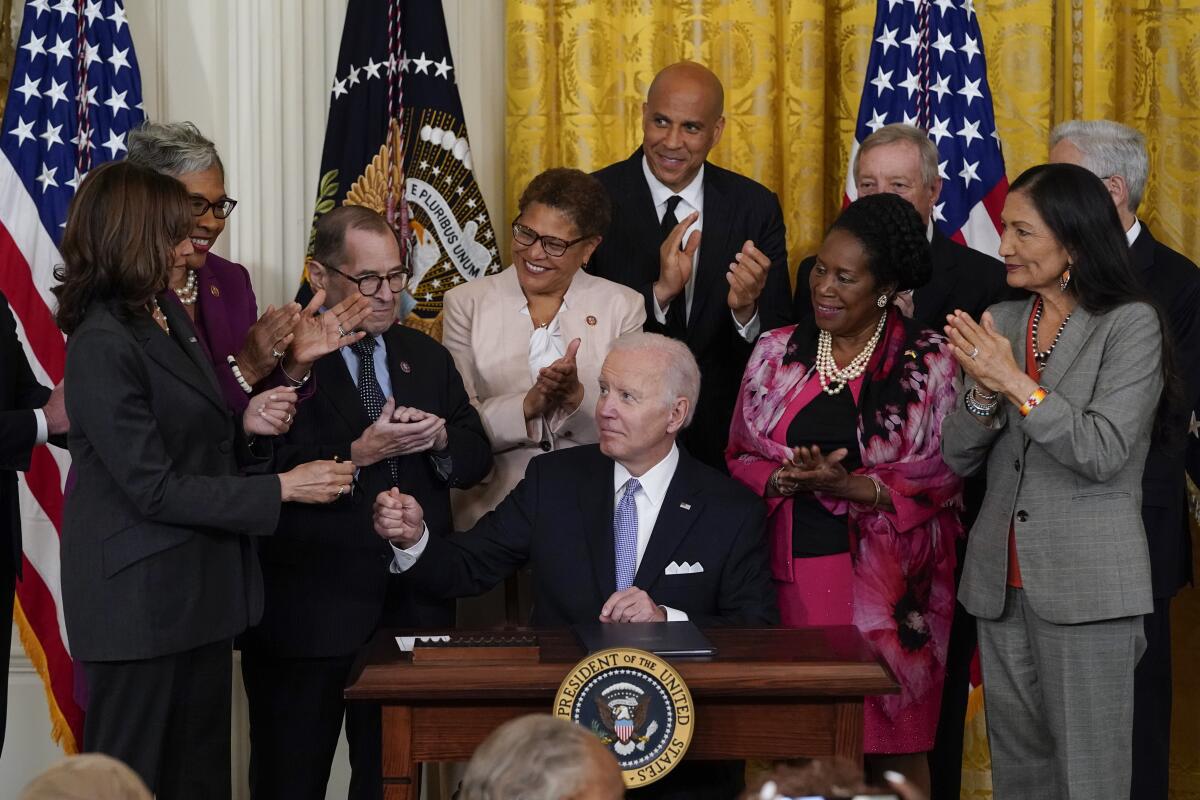
COVID-19 scuttled President Biden’s trip last month to Wilkes-Barre, Pa., where he planned to unveil a $37-billion public safety program centered on federal funding for 100,000 new police officers in local law enforcement departments around the nation.
The aim was to respond to anxiety over crime increases in some cities and to make clear to voters, in advance of November’s midterm elections, that he and congressional Democrats do not fit the soft-on-crime caricature painted by former President Trump and other Republican leaders.
Biden’s “Safer America Plan” moved forward in fits and starts before being formally presented Monday.
The previous Tuesday, Trump made his own crime-fighting speech, in which he praised China’s brutal criminal justice system, promoted sham trials and summary executions for suspected drug dealers, promised a return to the random police stops and searches (practices struck down by courts as unconstitutional) and called for the armed federal takeover of cities run by Democrats — in the name of public safety.
And he called for hiring “tens of thousands of police officers.”
President Biden signed an executive order Wednesday creating a national registry of officers fired for misconduct and revising use-of-force standards.
The nation’s response to crime and its attitude toward police continue to be central to the political debate. Biden knows that many Democrats reject the “defund the police” rhetoric coming from the progressive left, and he is fighting hard to be seen as the true supporter of law enforcement. He has rightly called out Trump’s disregard for Capitol Police officers injured during the Jan. 6 insurrection. It’s Trump who is the anti-police president, Biden said. “You can’t be pro-insurrection and pro-cop,” he said.
That’s true — except for the nagging reminder that police were on both sides of the barricades that day. The Capitol Police and D.C. Metropolitan Police officers who courageously protected members of Congress faced off against a MAGA mob that included a small but not-insignificant number of off-duty law enforcement officers.
To his credit, Biden earlier this year signed an executive order that puts in place many of the higher police performance standards embodied in the George Floyd Justice in Policing Act, a modest but important package of reforms that was passed twice by the House but died in the Senate. It bans chokeholds and carotid restraints in most cases, restricts no-knock entries, creates a database of police misconduct, promotes officer mental health and creates new guidelines for hiring and supervising police, among other things. That’s in marked contrast to the Trump approach, which he reminded his audience last week is to “leave our police alone.”
Yet the reach of those reforms is short — many apply only to federal officers and agencies, and they can be overridden by legislation or a subsequent order from the next president. Police culture is largely unchanged from the era before Floyd’s murder by Minneapolis Police Officer Derek Chauvin on May 25, 2020. So when we hire another 100,000 police officers, we may well be merely expanding the scope of a problem we have not yet begun to solve.
Congress’ failure to pass the George Floyd Justice in Policing Act represents a squandering of the moment in which meaningful police reform was possible.
Remember that as a senator, Biden was the principal author of the 1994 crime bill, a response to violence far worse than what we’re facing today, although by the time of its passage the crime wave was already abating. A key component of the bill was funding to hire 100,000 police officers.
Biden later called the bill a mistake, although not the officer-hiring component.
The officers were hired, and they were at first welcomed — but many of the neighborhoods they promised to protect were soon harmed by excessive force, surveillance and humiliation from the policing expansion. Little investment was made in improving living, working, education and health conditions in those same neighborhoods. It was an opportunity lost.
We don’t need 100,000 more police to do the same thing all over again. Nor do we need 100,000 Derek Chauvins or 100,000 more cops lurking hesitantly outside classrooms for more than an hour while children die inside. We don’t need more police who refuse to be vaccinated against a deadly communicable disease that has been one of history’s largest and most sweeping police killer, or more sheriffs who falsely assert that they are the final arbiters of the Constitution, or who flout subpoenas and investigations as L.A. County Sheriff Alex Villanueva does. We don’t need more officers in growing, publicly funded police PR departments, whose job is to justify every police action rather than to release factual public information about police incidents and actions.
Yet we most certainly need police. Even among the “defund” and “abolition” movements, there are those who quietly acknowledge that armed law enforcement officers play an important role in public safety.
In fact, responsible policing is the keystone of public safety.
America responded to the 1980s crack epidemic with police and prisons instead of public health. Now look where we are.
But like any armed force, police must be directed, restricted and corrected by attentive civilian leaders acting within a democratic system and in accordance with the law and the Constitution. Policing is an important servant but an oppressive master.
Biden has made important gestures and has taken substantive first steps toward more police accountability and smarter, more appropriate alternatives to policing where appropriate, but far more is needed. Those should be the nation’s priorities. Funding for 100,000 police officers may be a smart political calculation. But it’s the wrong move for public safety.
More to Read
A cure for the common opinion
Get thought-provoking perspectives with our weekly newsletter.
You may occasionally receive promotional content from the Los Angeles Times.
